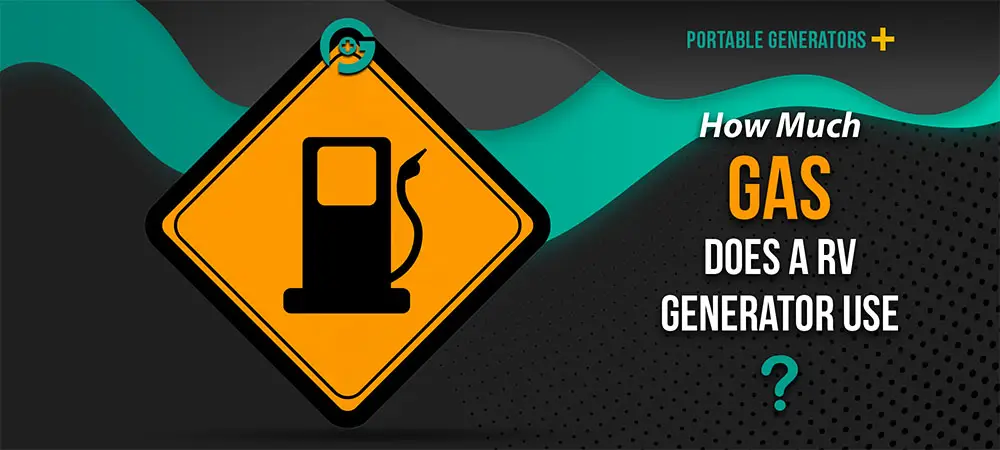How Much Gas Does A Rv Generator Use? - Quick Answer...
As a general guide, a smaller generator in the 2.5kW to 3.5kW range typically will consume around 0.25 to 0.5 gph (0.95 to 1.89 lph) at 50% load. A larger 8kW to 12kW generator can consume approximately 1 to 1.5 gph (3.79 to 5.68 lph) at 50% load.
As you can probably imagine there are a huge number a variables that will affect these figures so check the full article below for a more accurate idea!
Introduction
Question: How Much Gas Does a RV Generator Use?
Well, look no further – this article is here to provide you with all the answers. Whether you’re planning a road trip adventure in your RV or simply want to ensure you’re well-prepared, understanding the fuel consumption of your generator is crucial. So, let’s get straight to it and find out just how much gas your RV generator will typically use.
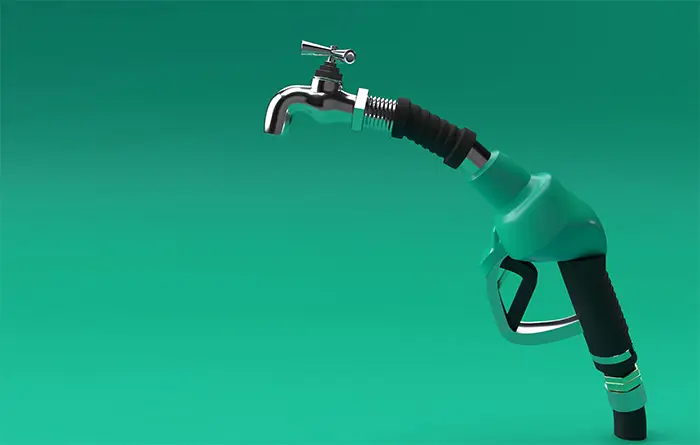
Factors That Affect RV Generator Fuel Consumption
Generator Size
The size of your RV generator plays a significant role in determining its fuel consumption. Generally, larger generators consume more fuel than smaller ones. If you have a smaller RV and only need to power basic appliances and lights, a smaller generator, such as a 1.5kW-2kW model, might suffice and consume less fuel.
However, if you have a larger RV with more power-hungry appliances, a larger generator, like an 8kW-12kW generator, may be necessary, but it will consume more fuel due to its higher power output capacity.
Power Load
Another crucial factor that affects fuel consumption is the power load you place on your RV generator. The more appliances, electronics, and devices you run simultaneously, the higher the generator’s fuel consumption will be.
It’s important to be mindful of your power usage and only power the necessities to help minimize fuel consumption. Prioritize and manage your power load effectively to ensure optimal fuel efficiency.
Type of Fuel
The type of fuel your RV generator utilizes also impacts its fuel consumption. The most common options are gasoline, propane, diesel, and solar power. Gasoline generators tend to have higher fuel consumption rates compared to propane generators.
Additionally, diesel generators offer excellent fuel efficiency, making them a popular choice among RV owners. Some RVers have even started embracing solar power as a cleaner and more sustainable alternative. Consider the availability and cost of different fuel types and choose the one that suits your needs while maintaining fuel efficiency.
Generator Efficiency
The overall efficiency of your RV generator can significantly influence its fuel consumption. Higher-quality and more modern generators tend to have better fuel efficiency due to advancements in technology and design.
When purchasing an RV generator, look for models with higher efficiency ratings. These generators are designed to optimize fuel consumption, helping you get the most out of every drop of fuel.
Altitude and Temperature
Altitude and temperature can impact your RV generator’s fuel consumption. As you increase in altitude, the air becomes thinner, which means less oxygen is available for combustion.
This can result in reduced generator performance and increased fuel consumption. Similarly, extreme temperatures, whether hot or cold, can affect the engine’s efficiency and increase fuel usage.
Understanding the impact of altitude and temperature on your generator can help you plan accordingly and make adjustments to maintain optimal fuel efficiency.

Calculating RV Generator Fuel Consumption
Understanding Fuel Consumption Ratings
Before calculating your RV generator’s fuel consumption, it’s essential to understand fuel consumption ratings. Generators typically list their fuel consumption rates in gallons per hour (gph) or liters per hour (lph). These ratings indicate how much fuel the generator will consume in a given time period while running at a specific power load.
Determining Generator Fuel Consumption
To determine your RV generator’s fuel consumption, you’ll need to consult the generator’s specifications or user manual. Look for the fuel consumption rating at various load levels, such as 25%, 50%, and 75%. Estimate the expected power load in relation to these levels, and calculate the corresponding fuel consumption. By understanding your generator’s fuel consumption at different load levels, you can make informed decisions about managing your power load and fuel usage.
Estimating Fuel Usage
To estimate your RV generator’s fuel usage during a trip, you need to consider the expected duration of generator usage and the anticipated power load. Multiply the generator’s fuel consumption rate (gph or lph) by the estimated duration in hours. This will give you an estimate of the total fuel needed to power your generator for the entire trip. Keep in mind that this is just an estimate and actual fuel consumption may vary based on factors like power load fluctuations and generator efficiency.
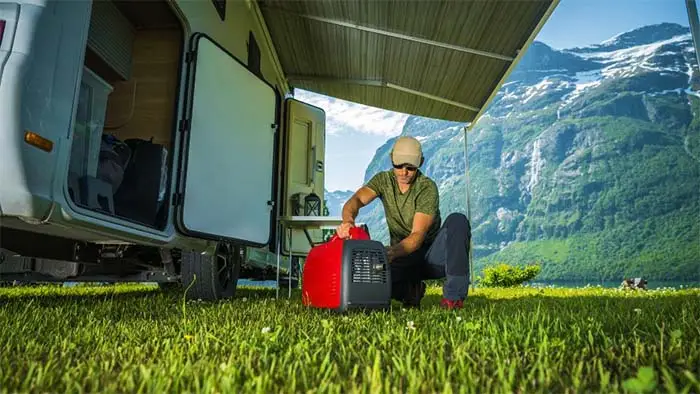
Average Fuel Consumption of Common RV Generators
1.5kW-2kW Generators
Smaller generators with power outputs in the range of 1.5kW to 2kW generally have lower fuel consumption rates compared to larger generators. On average, these generators consume between 0.10 and 0.25 gallons per hour (gph) or 0.38 to 0.95 liters per hour (lph) at 50% load. However, fuel consumption rates may vary depending on the specific model and other factors like power load and fuel type.
2.5kW-3.5kW Generators
Generators in the 2.5kW to 3.5kW range typically have slightly higher fuel consumption rates than the smaller ones. At 50% load, these generators consume around 0.25 to 0.5 gph (0.95 to 1.89 lph). Again, actual fuel consumption rates may vary based on various factors, so it’s essential to consult the specific generator’s documentation for accurate fuel consumption information.
4kW-5.5kW Generators
As the power output increases to the 4kW to 5.5kW range, so does the fuel consumption. These generators tend to consume approximately 0.5 to 0.75 gph (1.89 to 2.84 lph) at 50% load. It’s important to note that running the generator at higher loads will increase fuel consumption accordingly.
6kW-7.5kW Generators
In the 6kW to 7.5kW range, fuel consumption rates continue to rise. At 50% load, these generators can consume around 0.75 to 1 gph (2.84 to 3.79 lph). As with other generators, the actual fuel consumption depends on factors like power load, generator efficiency, and fuel type.
8kW-12kW Generators
Larger generators with power outputs ranging from 8kW to 12kW are designed to handle more demanding power requirements. Consequently, their fuel consumption rates are higher. At 50% load, these generators can consume approximately 1 to 1.5 gph (3.79 to 5.68 lph).
Larger Generators (12kW+)
For even larger generators with power outputs exceeding 12kW, fuel consumption rates may vary significantly depending on the specific model and load conditions. It’s essential to consult the manufacturer’s specifications or user manual for accurate fuel consumption information. A good estimate for larger generators at 50% load is approximately 1.5 to 2.5 gph (5.68 to 9.46 lph), but this can vary widely.
Tips for Reducing RV Generator Fuel Consumption
We have another article titled Maximizing Portable Generator Fuel Efficiency that covers a wide range of fuel-saving techniques.
Optimize Power Load
One of the most effective ways to reduce RV generator fuel consumption is to optimize your power load. Avoid running unnecessary appliances or devices simultaneously. Prioritize your power needs and use energy-efficient appliances to lower overall power consumption. By managing your power load effectively, you can minimize the strain on your generator and maximize fuel efficiency.
Regular Maintenance
Regularly maintaining your RV generator plays a crucial role in maintaining fuel efficiency. Follow the manufacturer’s recommended maintenance schedule, which typically includes tasks such as oil changes, filter replacements, and spark plug inspections. A well-maintained generator operates more efficiently, reducing fuel consumption and ensuring optimal performance.
Upgrade to a More Efficient Generator
If your current generator is older or inefficient, upgrading to a more fuel-efficient model can significantly reduce fuel consumption. Modern generators often incorporate advanced technologies and design features that improve fuel efficiency. Consider investing in a newer, more efficient generator to help save fuel and lower your overall expenses.
Consider Solar Power
Installing solar panels on your RV can harness the power of the sun to generate electricity. Solar power is clean, renewable, and free once you’ve made the initial investment. Using solar energy during the day can significantly reduce your reliance on the generator and minimize fuel consumption. While solar power alone may not be sufficient for heavy power loads or nighttime usage, it can still make a substantial difference in reducing your overall fuel consumption.
Manage Temperature and Climate Control
The temperature inside your RV can impact your generator’s fuel consumption. During hot weather, try to park your RV in shaded areas or use awnings and window coverings to minimize the heat entering your RV. This reduces the strain on the generator to power air conditioning units. Similarly, during colder months, insulating your RV and using portable heaters strategically can help reduce the power load on your generator, thereby decreasing fuel consumption.
Use Energy-Saving Appliances
Choosing energy-saving appliances for your RV can make a significant difference in fuel consumption. Look for appliances with high energy efficiency ratings, such as Energy Star-certified models. These appliances are designed to use less power without compromising performance. By investing in energy-saving appliances, you can enjoy the same level of comfort while minimizing fuel usage.
Reduce Idle Time
Leaving your RV generator running when it’s not necessary contributes to unnecessary fuel consumption. Minimize idle time by turning off the generator when appliances are not in use or when you’re away from the RV. Additionally, avoid running the generator overnight if it’s not essential. By reducing idle time, you can conserve fuel and prolong the lifespan of your generator.
Properly Insulate Your RV
Ensure that your RV is properly insulated to maintain a comfortable interior temperature. Insulation helps retain heat during colder months and keeps the cool air in during hotter weather. By minimizing temperature fluctuations, you can decrease the need for excessive generator usage, leading to reduced fuel consumption.
Travel Light to Reduce Weight
Carrying excess weight in your RV can increase fuel consumption, as the engine needs to work harder to tow the additional load. Before hitting the road, assess your cargo and belongings to ensure you’re only carrying essentials. Leave behind unnecessary items to reduce weight and improve fuel efficiency. Additionally, avoid overfilling water tanks and fuel tanks unless necessary for your trip.
Plan Efficient Routes
Planning your travel routes strategically can help minimize fuel consumption. Avoiding congested urban areas with heavy traffic can reduce the time spent idling, optimizing your fuel efficiency. Consider using navigation apps or GPS devices that provide real-time traffic information and suggest alternate routes. By minimizing unnecessary detours and traffic delays, you can conserve fuel and make the most out of your RV generator’s fuel capacity.

How Much Fuel to Carry for RV Generator
Consider Fuel Tank Capacity
When determining how much fuel to carry for your RV generator, it’s crucial to consider your fuel tank capacity. Most RVs have built-in fuel tanks that can hold a certain amount of fuel. Assess the capacity of your fuel tank and determine how much of it you want to reserve for your generator. It’s recommended to keep a portion of the fuel tank reserved for the RV’s engine to ensure you have enough fuel for driving.
Calculate Fuel Consumption Rate
To estimate the amount of fuel you’ll need for your generator, calculate the fuel consumption rate based on its specifications and the expected power load. Multiply the generator’s fuel consumption rate (gph or lph) by the anticipated runtime in hours. This calculation will give you an estimate of the amount of fuel required for your generator during the trip.
Plan for Extra Fuel Stops
When planning long trips, it’s essential to consider the availability of fuel along your route. Research fuel stations or truck stops along the way to ensure you have access to enough fuel for both your RV’s engine and the generator. Additionally, when estimating fuel needs, it’s always a good idea to plan for some extra fuel stops in case of unexpected circumstances or emergencies.
Consider Fuel Availability
Different regions and locations may have varying fuel availability for different fuel types. Depending on your chosen fuel type (gasoline, propane, diesel), research the availability of that fuel in the areas you plan to travel. It’s crucial to ensure that the fuel you use for your generator is readily available along your route to avoid unnecessary fuel shortages and disruptions.
Factors to Consider for Extended Trips
For extended trips, additional factors should be considered when determining how much fuel to carry for your RV generator. Factors such as the availability of fuel stations, the anticipated duration of your trip, and the frequency of generator usage will all impact the fuel needs of your RV. It’s essential to plan ahead and calculate the fuel requirements accordingly to ensure a seamless and uninterrupted journey.
Comparing Fuel Costs of Different Types of RV Generators
Gasoline vs. Propane Generators
When comparing the fuel costs of gasoline and propane generators, there are a few key considerations. Gasoline is typically more readily available and convenient to find at fuel stations across the country. However, gasoline prices can be more volatile and subject to price fluctuations. On the other hand, propane is generally cheaper compared to gasoline, and its prices tend to be more stable. Propane also offers the advantage of cleaner combustion, potentially reducing maintenance needs and extending the lifespan of the generator.
Diesel vs. Gasoline Generators
Comparing the fuel costs of diesel and gasoline generators involves considering several factors. Diesel fuel is generally more fuel-efficient compared to gasoline, meaning it provides more energy per gallon consumed. Diesel generators are known for their longevity and durability, making them a popular choice for RVers. However, diesel fuel prices may be higher than gasoline in some regions, and diesel generators tend to have a higher upfront cost.
Solar vs. Conventional Generators
Solar power offers the advantage of fuel-free operation and the potential for significant cost savings over time. While solar panels require an initial investment, they can generate electricity for your RV without relying on fuel. This can result in substantial long-term savings. However, solar power may have limitations, particularly on cloudy or rainy days, and it may not be sufficient to power high-demand appliances or devices. It’s important to assess your power needs and consider the trade-offs between solar and conventional generators.
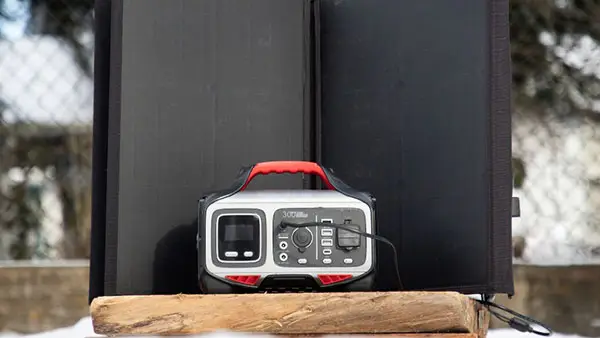
Understanding Generator Runtime and Fuel Efficiency
Runtime vs. Fuel Consumption
Generator runtime refers to the duration for which the generator can operate continuously on a full tank of fuel. Fuel consumption, on the other hand, refers to the rate at which the generator consumes fuel while running. Fuel consumption determines the generator’s fuel efficiency, while runtime indicates how long the generator can sustain operation before requiring refueling. Both runtime and fuel consumption are crucial factors to consider when managing your fuel needs and optimizing efficiency.
Factors that Affect Generator Runtime
Several factors can impact the runtime of your RV generator. The generator’s fuel tank capacity, the fuel consumption rate at various load levels, and the power load you place on the generator are all significant influences. Additionally, external factors like altitude and temperature can affect generator runtime by influencing fuel combustion and engine efficiency. Understanding these factors helps you plan for extended generator usage during your trips.
Improving Generator Fuel Efficiency
To improve generator fuel efficiency, there are several steps you can take. Regular maintenance, as mentioned earlier, is crucial. Keeping your generator in optimal condition ensures it operates efficiently and consumes fuel at the intended rate. Additionally, managing your power load effectively and prioritizing energy-saving appliances can reduce unnecessary fuel consumption. Finally, upgrading to a more modern and efficient generator can offer substantial improvements in fuel efficiency.
Monitoring Fuel Consumption
Monitoring your RV generator’s fuel consumption is essential to maintain fuel efficiency and manage fuel needs effectively. There are different ways to measure fuel consumption, including using a fuel flow meter, manual observation methods, integrated generator monitoring systems, and fuel consumption calculation tools. By regularly monitoring your fuel consumption, you can identify any sudden changes or issues that may impact fuel efficiency and take corrective measures accordingly.
How to Measure RV Generator Fuel Consumption
Using a Fuel Flow Meter
A fuel flow meter is a device that measures the flow rate of fuel passing through it. By installing a fuel flow meter in your RV generator’s fuel line, you can accurately measure the amount of fuel consumed over a specific period. Fuel flow meters provide real-time data and are especially useful for monitoring fuel consumption during a trip or when running the generator for extended periods. Consult the manufacturer’s instructions to properly install and calibrate the fuel flow meter for accurate measurements.
Manual Observation Method
The manual observation method involves tracking fuel usage by regularly checking and recording the fuel level in your generator’s fuel tank. Before and after using the generator, note the initial and final fuel levels and calculate the difference. By dividing the total fuel consumed by the runtime, you can estimate the fuel consumption rate. While this method may be less precise than using a flow meter, it can still provide useful insights into fuel consumption patterns.
Integrated Generator Monitoring Systems
Many modern RV generators come equipped with integrated monitoring systems that provide real-time information about fuel consumption. These systems use sensors and displays to provide accurate data on fuel usage, power load, and runtime. Integrated monitoring systems make it easy to keep track of fuel consumption and ensure optimal usage.
Fuel Consumption Calculation Tools
Various fuel consumption calculation tools are available online and as mobile applications. These tools allow you to input your generator’s specifications, power load, and expected runtime to estimate fuel consumption. Although these calculations may not be as precise as actual measurements, they can provide a good estimate for planning purposes.
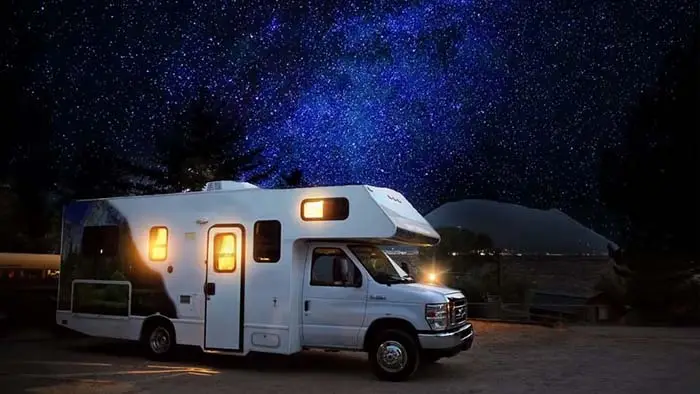
Government Regulations and Fuel Efficiency Standards
Environmental Protection Agency (EPA) Standards
The Environmental Protection Agency (EPA) sets standards and regulations for fuel efficiency and emissions in RV generators. These standards are in place to minimize air pollution and ensure that generators operate efficiently. It’s important to choose RV generators that comply with EPA standards to contribute to a cleaner environment and enjoy the benefits of fuel-efficient operation.
California Air Resources Board (CARB) Standards
For RVers in California, it’s crucial to be aware of the California Air Resources Board (CARB) standards. CARB implements stricter regulations to control emissions from various sources, including RV generators. If you plan to travel or reside in California, ensure your generator meets CARB’s standards to comply with local regulations.
Compliance and Certification
To ensure compliance with government regulations and fuel efficiency standards, RV generator manufacturers subject their products to testing and certification processes. Look for generators that carry certifications such as EPA certification or CARB-compliant designation. These certifications provide assurance that the generator meets specific fuel efficiency and emission requirements established by the governing bodies.
Conclusion
When it comes to RV generator fuel consumption, several factors influence how much fuel your generator will use. Factors such as generator size, power load, type of fuel, generator efficiency, altitude, and temperature all play a role. By understanding these factors, you can make informed decisions to optimize fuel consumption and maximize the efficiency of your RV generator.
Calculating fuel consumption is important for estimating fuel needs and managing power load effectively. By understanding fuel consumption ratings, determining generator fuel consumption, and estimating fuel usage, you can better plan for your trips and ensure you have enough fuel for your generator.
Knowing the average fuel consumption of common RV generator sizes allows you to compare models and choose the one that fits your needs while minimizing fuel consumption. Additionally, implementing tips for reducing fuel consumption, considering fuel costs, understanding generator runtime and fuel efficiency, and measuring fuel consumption help you further optimize fuel usage.
Government regulations and standards, such as those set by the EPA and CARB, ensure that RV generators meet fuel efficiency and emission requirements. Complying with these regulations contributes to a cleaner environment and helps maintain fuel-efficient operations.
In conclusion, by considering all these factors and following the tips provided, you can effectively manage and optimize your RV generator’s fuel consumption. This not only helps save money on fuel costs but also contributes to a more sustainable and enjoyable RVing experience.
We hope this information was helpful to you. Please check below for other RV Generator Guides and Articles.
Cheers!

